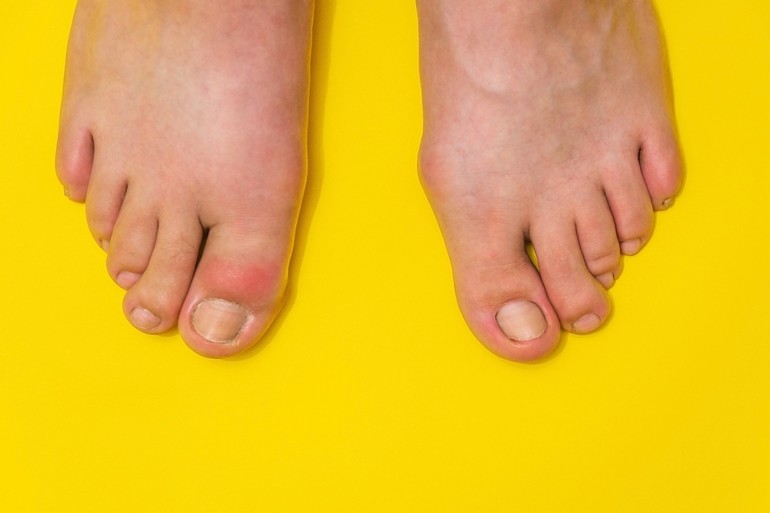The Centers for Advanced Orthopaedics is redefining the way musculoskeletal care is delivered across the region with locations throughout Maryland, DC, Virginia and Pennsylvania.
How To Treat Gout Of The Big Toe

If you’re dealing with sharp pain and tenderness in your big toe joint, but you’re not dealing with the formation of a bony bump that could signal a bunion, what’s likely causing the problem in your foot? In many instances, pain in the big toe joint that is not related to bunion formation is caused by gout.
Gout is a form of inflammatory arthritis that can affect a number of different joints in your body, but oftentimes it causes problems in your big toe joint. It’s caused by the buildup of uric acid in the joint, and this acid can actually lead to the formation of sharp crystalline deposits in your joint. When you move, these sharp crystals irritate and inflame a joint, causing symptoms.
Causes And Symptoms Of Gout
So while you know that the buildup of uric acid can lead to gout, what causes uric acid to develop in the joints in the first place? The body produces uric acid to aid in digestion, but if too much is made or your kidneys can’t filter it out as needed, it can settle in your joints. Factors that can lead to more uric acid production and in turn a higher likelihood of gout include:
- Being male
- Being overweight or obese
- Diabetes
- High blood pressure
- Alcohol use
- Consuming a lot of animal protein
- Limited exercise
In other words, if you don’t have the best diet or exercise regimen and you’re overweight, you’re at a heightened risk for a gout attack. Symptoms of a bout with gout include:
- Sharp pain in the big toe joint area
- Redness
- Decreased range of motion
- Lingering discomfort in the foot
- Swelling
- Discomfort
Diagnosing And Treating Gout
If you suspect that you’re dealing with gout, make an appointment with a foot specialist in your area. They’ll discuss your symptoms, review your medical history and take a closer look at your toe. Blood tests or imaging exams may also be ordered, but they aren’t always necessary if all other signs are pointing to gout.
After you’ve been diagnosed, your doctor will walk you through some treatment options. The good news is that surgery isn’t a viable remedy for gout, so your specialist will explain your conservative care options. Treatment tends to focus on reversing some of the lifestyle risk factors that can lead to uric acid buildup in the joints. For example, your doctor may recommend that you pursue more frequent exercise, that you change your diet a bit and that you cut back on smoking or drinking alcohol.
Medications can also help to calm symptoms and inflammation, but if you don’t make the necessary lifestyle changes to address the uric acid situation, more gout attacks are likely in your future. Medications to control gout should always be paired with lifestyle interventions in order to achieve the desired long-term results.
Gout can oftentimes be successfully treated by connecting with a specialist and pursuing some of the simple lifestyle changes listed above. If you’d like to get in control of your gout, or you want to talk to someone about the foot discomfort you’re experiencing, reach out to the team at The Orthopaedic Foot & Ankle Center today at (703) 584-2040.